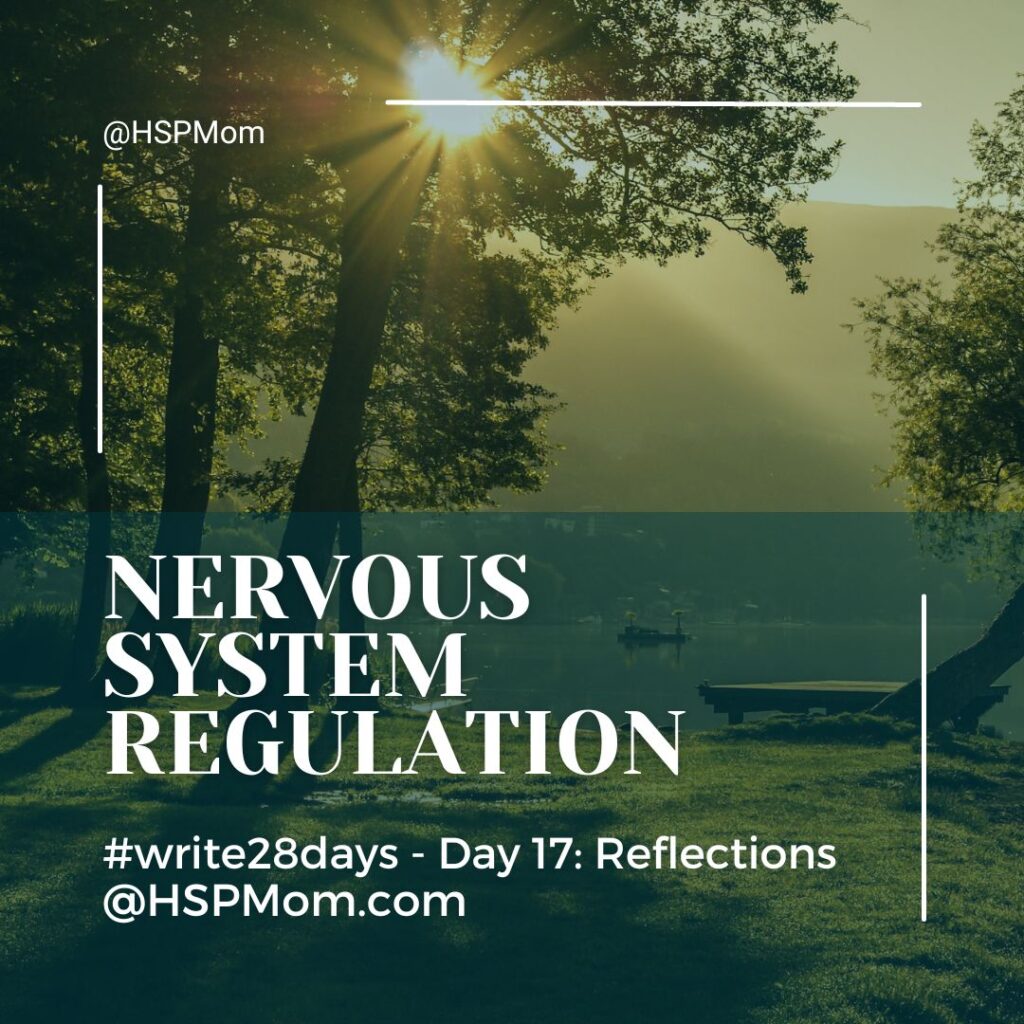#write28days of Nervous System Regulation: Day 26 – Threat
Welcome to day 26 of #write28days! If you are just joining in, you can find a full list of what has been written by me so far here. Each day of February we are writing on a topic, guided by a list of topic words chosen by the organizer. Today’s topic word is threat, which lends itself very well to the topic of nervous system regulation!

The nervous system responds to threat in one or a combination of the following ways, some of which you have probably heard of, and some which might be new to you:
Fight – your sympathetic nervous system activates and pushes out adrenaline so you can fight the threat. This doesn’t necessarily mean punching/kicking, it can also be staying and fighting with words, and feeling high anger.
Flight – also from the sympathetic nervous system, this is used when you don’t think you can fight, and so either flee the space, or if not, feel very fidgety and trapped, kind of like a “pre-flight”.
Freeze – Freezing is organized primarily by a different part of the nervous system, the dorsal vagus nerve and a spike in the parasympathetic nervous system activation. This is when you feel threatened but feel frozen in place and cannot act. You might collapse, or feel heavy, dissociated, or unable to access words or emotions.
Fawn – used when the first three aren’t available to you for whatever reason. Often is common in people raised in toxic homes. Fawning is trying to over-give your way into safety – trying to be overly helpful, over-agreeable, doing whatever it takes to keep your “attacker” happy so that they don’t hurt you physically or psychologically.
and I’ve also heard of other “F’s” like flag and flop included in the above, but these four are pretty universally accepted now.
I found this helpful chart on a Facebook post that explains them side by side:
If you have had a long period in your life where you needed to use the above techniques, you may find that you are “stuck” in one or more of them.
This is when brain retraining practices, like I have been describing in other posts, become helpful.
You’ll never avoid threats completely in your life, but with conscious practices you can train your nervous system that you are OK, and it will return to a healthy baseline instead of getting stuck in fight, flight, freeze, or fawn.






